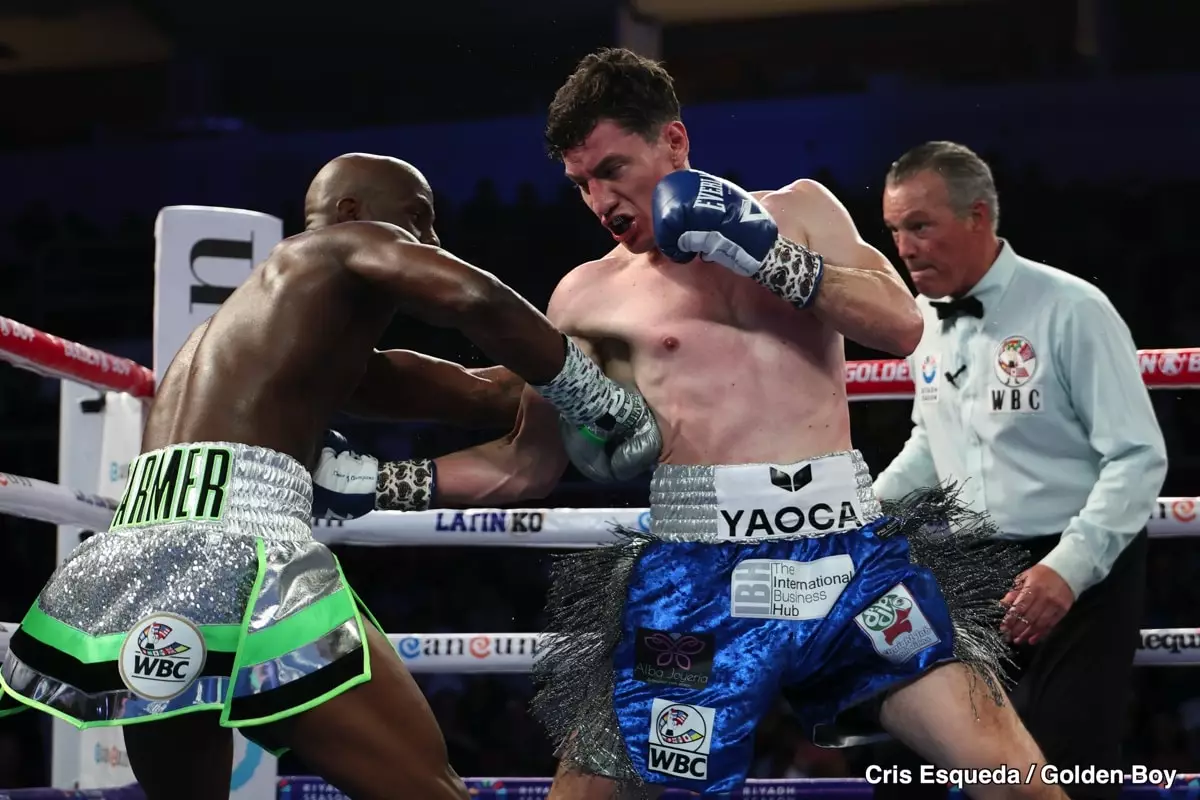In a highly anticipated rematch, Tevin Farmer (33-8-1, 8 KOs) faced off against the unyielding William Zepeda (33-0, 27 KOs) for the WBC interim lightweight title. At the heart of this combat was a stark contrast in fighting philosophies. Farmer, who was once a celebrated IBF super featherweight champion, opted for a defensive, clinch-heavy strategy—perhaps out of fear or perhaps strategic miscalculation—against Zepeda, whose long-armed, relentless offensive style starkly contrasts Farmer’s approach. The result? A 12-round majority decision that left more questions than answers.
A Fight of Missed Moments
Farmer’s performance was nothing short of a rollercoaster. While he largely spent the early to middle rounds tethered to Zepeda, relying on clinching to stave off damage, the latter stages of the bout revealed glimpses of Farmer’s potential, albeit too little and too late. In those championship rounds, Farmer shifted gears, seemingly shedding his constrictive tactics to finally let his hands go. The twelfth round showcased a particularly electrifying moment when many believed Farmer had scored a knockdown; unfortunately, the referee’s decision to dismiss this claim added to the overall frustration for Farmer’s camp.
The reality was clear: disappointment loomed large in the air of the Poliforum Benito Juárez, where many spectators had hoped to witness a display of true boxing mastery instead of an elaborate grappling match.
The Referee’s Role in the Mayhem
One can’t help but examine the role of the referee in this dilemma. A referee’s duty is to ensure that the fighters honor the spirit of the bout, a pillar of sport often usurped by unsanctioned tactics. Farmer’s overt reliance on clinching—an effective but often frowned-upon strategy—challenged the match’s integrity. Critics, including many a seasoned observer, argued that he should have faced point deductions, given the extent to which he leaned on this form of defense. The lack of intervention from the referee not only emboldened Farmer but also impeded Zepeda’s aggressive efforts, ultimately shaping the fight’s narrative into one of survival rather than scoring.
Post-Fight Reactions: The Voice of Discontent
After the final bell rang, Farmer’s reaction furor painted a rather unsavory picture. Rather than acknowledging the shortcomings in his approach, he lamented a familiar tale of being “robbed” by judges. Yet, the numbers—114-114, 116-112, and 115-113 all favored Zepeda—paint a different story altogether. This echoed his earlier contest against Zepeda, where clinching overtook fighting and left fans wondering if Farmer needed to re-evaluate his style rather than position himself as the victim.
His rhetoric post-fight compounded the perception that Farmer wasn’t ready to confront the reality of his ring struggles. The looming dismissal of accountability can often lead a fighter down a path of stagnation—forever trapped in cycles of denial rather than growth.
The Need for Evolution
So where does this leave Tevin Farmer? The broader implications of his rematch against Zepeda offer a strong case for evolution within the sport. It’s time for Farmer to acknowledge that merely surviving through grappling isn’t a long-term solution in boxing, especially against young, vibrant fighters like Zepeda who maintain relentless forward momentum. Perhaps it’s time for Farmer to seek bouts that challenge him in different ways—think a matchup with the likes of Andy Cruz, who can offer a fresh narrative rather than a rehash of already trodden ground.
Farmer’s tactics may have bought him time in the ring, but boxing is a sport rooted in skill, flair, and heart—the very elements he failed to fully capitalize on. Fans, critics, and most importantly, Farmer himself would benefit greatly from a serious introspection that embraces not just the ‘how’ but the ‘why’ of his approach to the sport. The future of his career hangs in the balance, urging him toward a more captivating boxing journey rather than a repetitive loop defined by clinches and complaints.


Leave a Reply